Providing essentials to Texans of all ages
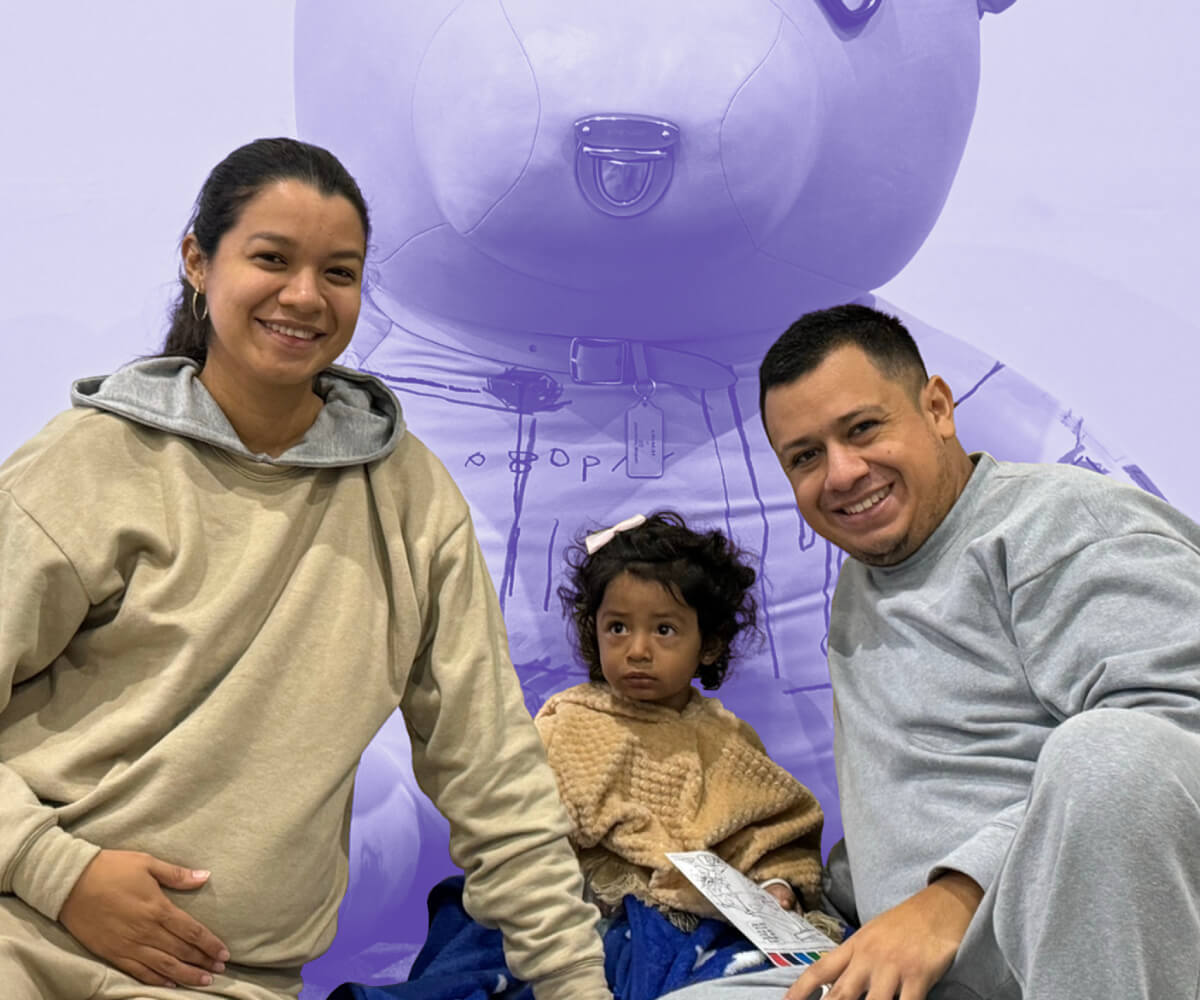
Overview
Delivering dignity to families
When Margarita lost her job, she wasn’t sure how she would afford diapers for her infant son, Jonathan. She reached out to Texas Diaper Bank, which not only provided diapers but also delivered them at no cost.
Margarita’s story isn’t unique; the organization and its robust volunteer network have helped thousands of families in similar situations, whether due to natural disasters, economic pressures, or changes in living circumstances. Providing essentials like diapers, incontinence products, and menstrual items ensures that people in the community retain their dignity and meet their basic needs.
Texas Diaper Bank has focused on providing personal care essentials since 2010. What started as a one-person show in a 500-square-foot classroom has grown to a 30,000-square-foot facility with 18 employees who serve people throughout the state of Texas.
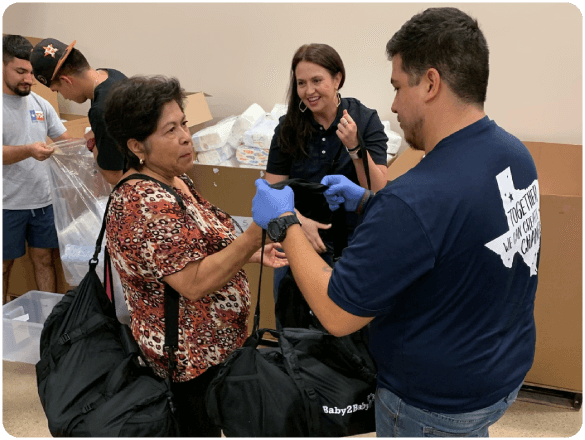
The majority of Americans donate to charities supporting disaster relief, and Bonterra data shows that between 2023-24, 58% of relief organizations saw a significant increase in giving. This type of windfall in resources during a crisis can create a lot of pressure on nonprofits working overtime to address urgent needs. When Hurricane Harvey devastated the Texas coast in 2017, Texas Diaper Bank relied on the power of technology to quickly scale its donor and volunteer operations without affecting its core mission.
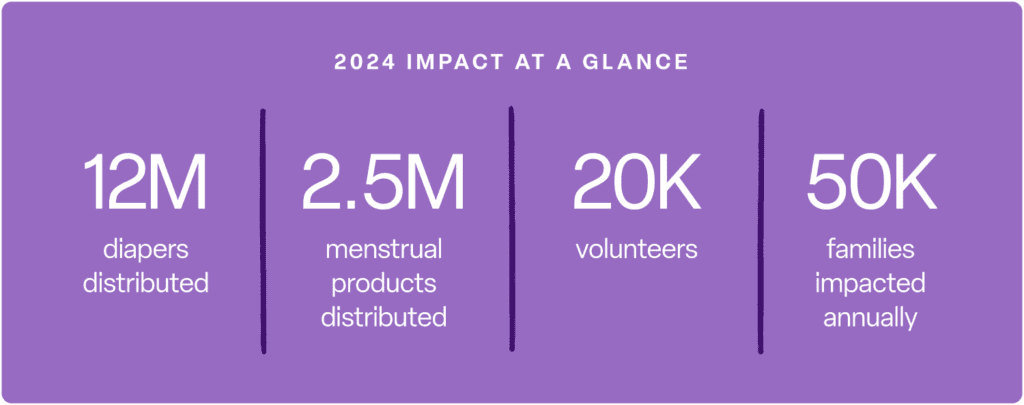
Challenges
A hurricane of help
In August of 2017, nearly 780,000 people evacuated their homes, and over 40,000 residents required temporary shelter as Hurricane Harvey barreled up the Texas coast. Hundreds of thousands along the coastline were left without access to power, water, and necessary supplies.
“People don’t realize that when a disaster happens, and people are being evacuated, the last thing they pack are these types of essentials,” says Jorge Medina, CEO and founder of Texas Diaper Bank, referring to diapers, incontinence products and menstrual items. “They arrive at a shelter, and they’re welcomed with a warm bed and some food, but none of these essentials are provided.”
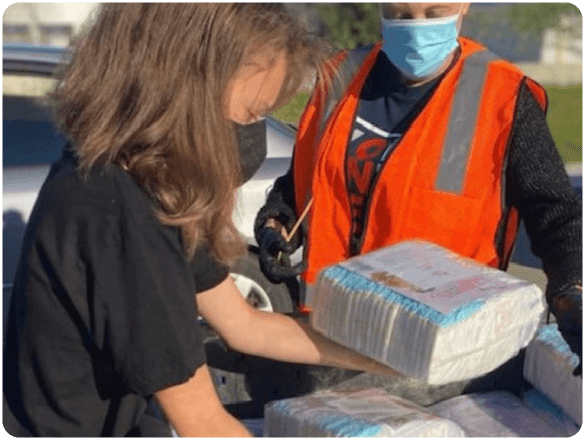
Texas Diaper Bank’s response to Hurricane Harvey was a turning point in the organization’s history. To call attention to the needs of their community, it put out a press release, which was picked up by NPR and attracted attention from around the country. Seemingly overnight, the organization was flooded with offers for help, financial support, and product donations.
“We started getting phone calls from different places — foundations, celebrities — wanting to donate, and everything started to come in, almost like a hurricane in itself,” says Jorge. “But it was a good hurricane where we were inundated with people wanting to help with money, product donations and their time.”
Any nonprofit would be fortunate to have the problem of too many resources. But with an overwhelmed staff, Texas Diaper Bank needed help to ensure they were able to harness the media attention and investment and make the most of those resources to serve as many as possible.
The need for essentials
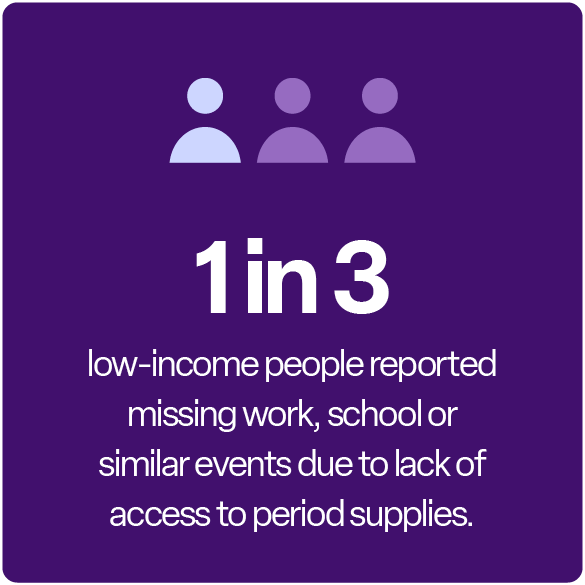
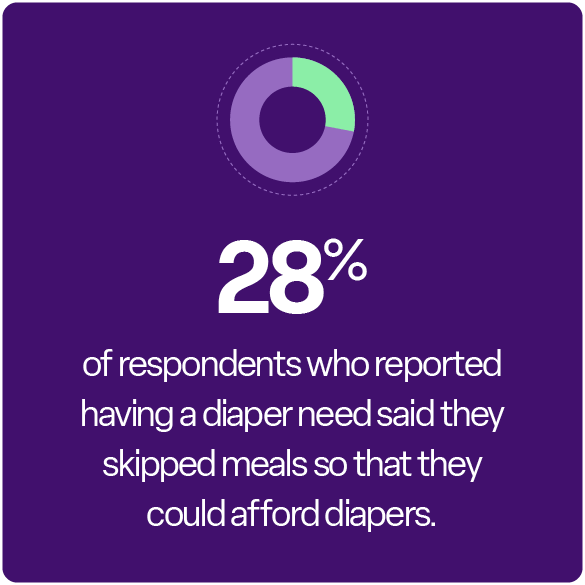
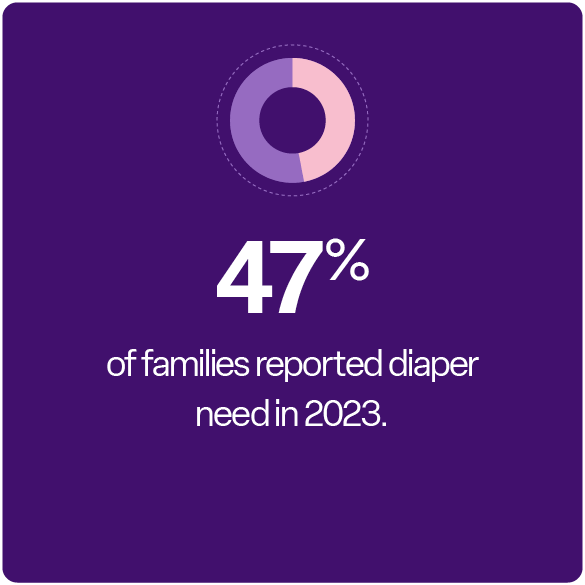
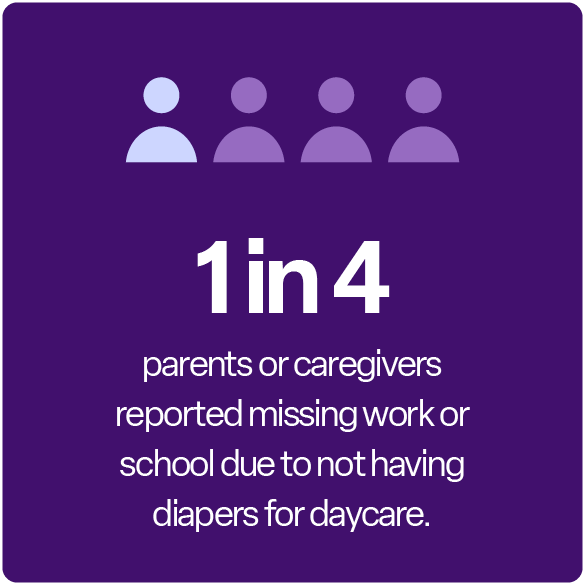
Solution
Technology that manages multitudes
In a fortunate twist of fate, Texas Diaper Bank had implemented Bonterra Network for Good a few months before Harvey hit. The organization had chosen the technology to modernize its donor management and fundraising efforts.
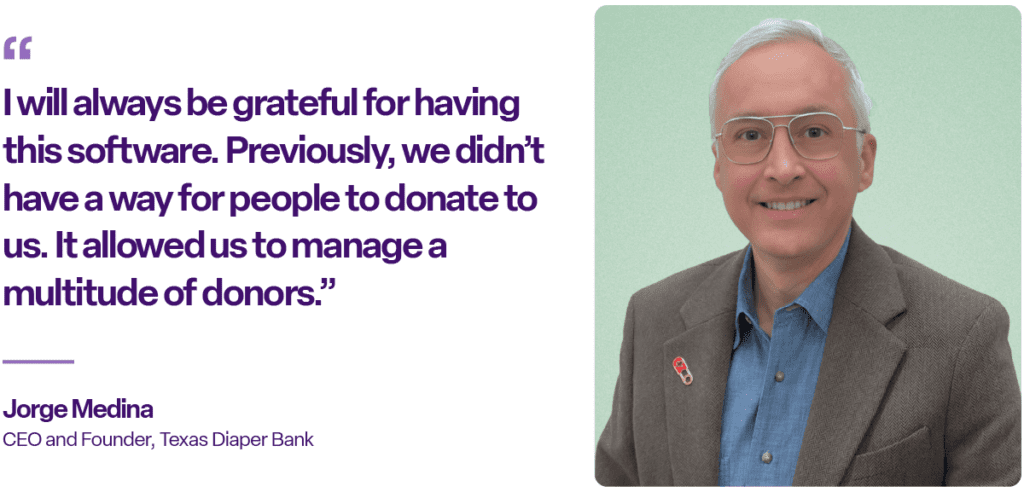
“I will always be grateful for having this software,” says Jorge. “Previously, we didn’t have a way for people to donate to us. It allowed us to manage a multitude of donors.” It also made it possible for Texas Diaper Bank to tap into those electronic donations quickly and pay for the additional warehouse space and staff to manage the incredible amount of product donations.
With climate change increasing the likelihood of more natural disasters, Texas Diaper Bank likes that it can use the technology to communicate with its donor network when events are on the horizon, before they even strike. “We can reach out and say, there’s a storm coming or people are being evacuated. Here’s a way for you to help,” says Jorge.
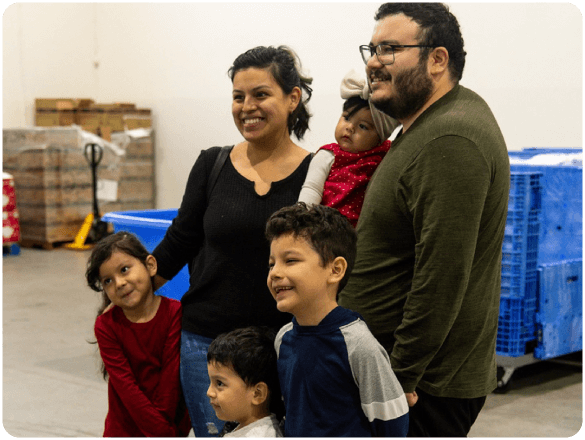
This directional help is especially important during natural disasters, when people’s desire to help can be undermined by not knowing what to do. Research shows that 52% of Americans say that when a crisis occurs, they don’t know where to find reputable information on how to direct a monetary donation to support those in need.
This is where trust comes in: Bonterra Network for Good serves as a useful lifeline for building relationships with donors. It helps tell the organization’s story with impact numbers showing where the funds go, how many people are being helped, and how to get involved.
“Having the capability to say, ‘Just go to our website and click this button to donate right now.’ — is everything,” adds Jorge.
Impact
Preparing for the future
Due to the space afforded by its expansion in the last few years, Texas Diaper Bank is able to offer a location for large groups of volunteers to gather and give back to their community. More than 5,100 people dedicate their time every year to repackaging diapers, assembling emergency kits, and organizing donations.
“Volunteers help us stretch our resources further and serve more people with dignity and care. Their involvement makes our mission possible,” says Jorge. Texas Diaper Bank offers a welcoming and rewarding volunteer experience where people can see an immediate impact of their efforts. “Every person knows their contribution matters. That sense of purpose and community is powerful — and it brings people back again and again.”
It’s not just people giving their time and energy; corporations are proving to be valuable partners as well. For example, in March, it partnered with the San Antonio Spurs to host “Dunks 4 Diapers,” which gave $5 of every ticket sold toward Texas Diaper Bank.
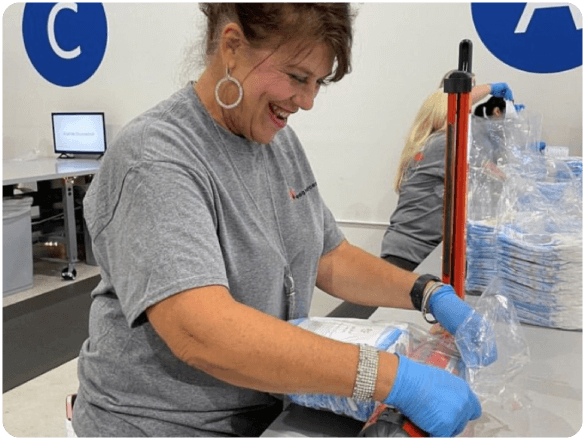
In 2022, the organization partnered with Doordash to expand the reach of its delivery services to within 10 miles of the San Antonio warehouse, saving an estimated $10,000 on fuel and wear and tear on vehicles every year. At first, the program was intended to serve the senior community that lacked access to transportation and had needs for incontinence products, but since then, it’s expanded to include families, as well.
Ashley, who has been getting support from the Texas Diaper Bank for six years, says there have been times when she didn’t have enough funds for diapers and pullups for her family. With the Doordash delivery program, she’s able to get those products sent to her home free of charge. “They also give you a message 30 minutes or an hour before they’re on the way to deliver,” she says.
Much like a well-timed delivery, Texas Diaper Bank is planning to be there as needs arise in the communities it serves.
“Our strategy moving forward is about having the financial resources, the human resources and product resources ready for when there are shifts, whether it’s economic downturns, disasters, or social crises,” says Jorge. “We want to be ready to meet the growing demand.”
If you want to help Texas Diaper Bank change lives one diaper at a time, click here to donate.
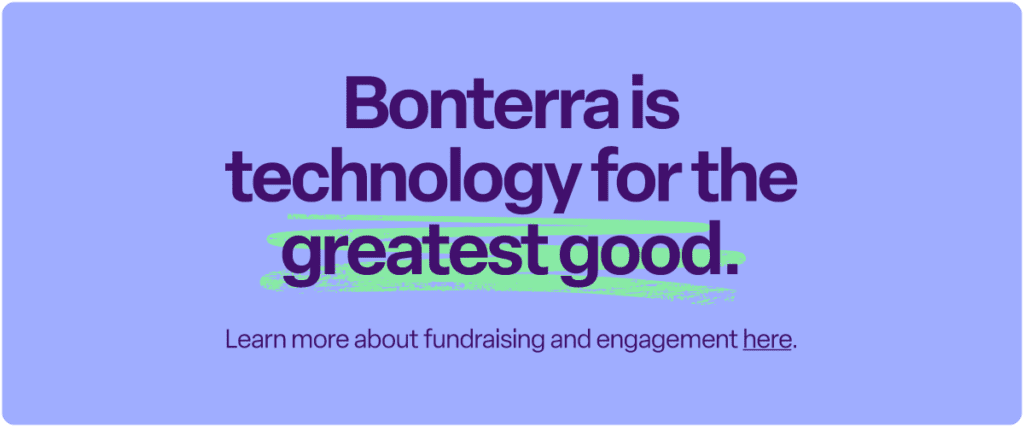
Work with Bonterra



